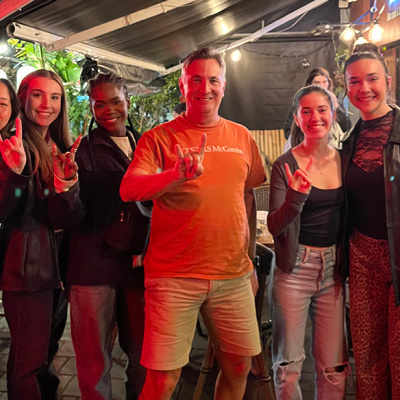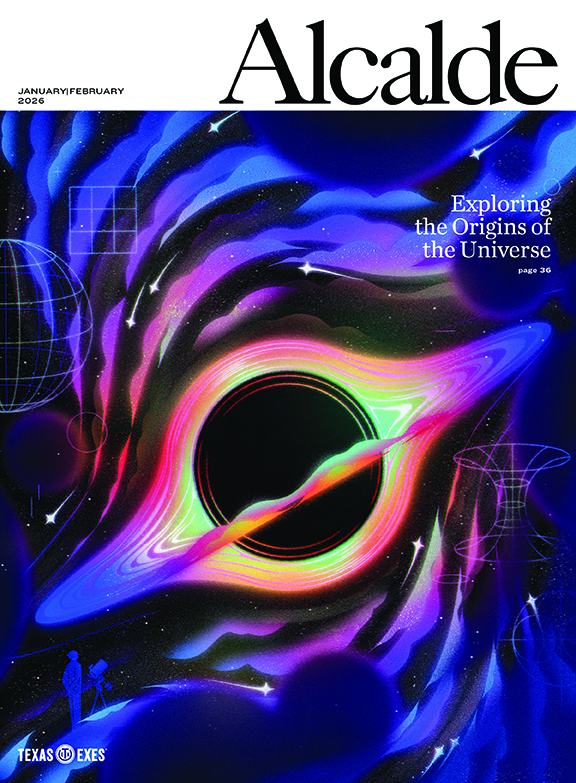UT Researchers Use Supercomputer To Address Looming Global Food Shortage

Can supercomputers feed the planet?
Dan Stanzione and Matthew Vaughn think they can. The UT scientists are heading up an interdisciplinary project, the iPlant Collaborative, that uses advanced computing to make agriculture more efficient.
Stanzione, deputy director of the Texas Advanced Computing Center, and Vaughn, a computational biology researcher at the center, shared their research last night at a lecture sponsored by the Austin Forum on Science, Technology, and Society.
The researchers painted a dire picture of the agriculture industry’s ability to meet the needs of a rapidly growing population.
“By 2100, world agricultural output will have to increase hugely if we’re going to feed everyone,” Stanzione said. Pointing to the lowest of three upward-sloping lines on a chart predicting human population growth, he said, “This is the plague-and-pestilence model, the most conservative estimate. And even that is going to cause big problems.”
On one level, it’s a simple mathematics problem: more people living on the same amount of land means we have to use that land more efficiently. Advances in farming technology have steadily increased food output for decades, but now there are signs that these improvements are slowing down. And problems like climate change, water and air pollution, and the globalization of a Western diet pose a serious threat.
Stanzione said that the average American eats three pounds of corn per day—triple what people eat in Asia and Europe, where about one pound per day of rice or wheat, respectively, is the norm.
“You might not think you eat that much corn every day, but you probably do,” he said. “Corn syrup and corn products are in many of our processed foods. And all around the world, more people are eating the way we do, which is pretty unhealthy.”
Stanzione poked fun at his own diet: “After looking at all this data, I realized I either had to give up eating cheeseburgers, or I had to help improve agriculture. And I wasn’t about to give up cheeseburgers.”
So he and his colleagues won an NSF grant to start the iPlant Collaborative. They’re hoping that supercomputing can help engineer plants that are hardier, healthier, and yield more food.
“After looking at all this data, I realized I either had to give up eating cheeseburgers, or I had to help improve agriculture. And I wasn’t about to give up cheeseburgers.”
Engineering a better plant means understanding it at a very minute genetic and cellular level. This is a big challenge for scientists because many plants have tens of thousands of genes. Working with that deluge of data can be like sifting through a beach in search of specific grains of sand.
“Biologists now handle hundreds of gigabytes of data and must learn complex computational software,” said Vaughn. “Advanced computing tools help researchers triage all that information.”
Their research is still in an early stage, and it remains to be seen just how useful a tool supercomputing will be for agriculture. But technologies from iPlant have already helped researchers improve their understanding of topics like epigenetics, or changes in gene expression caused by mechanisms other than alterations in the genetic code.
“When I finished grad school, all my data fit on 12 floppy disks,” Vaughn said. “It's a whole new world now.”
Photo by Armando Vera






